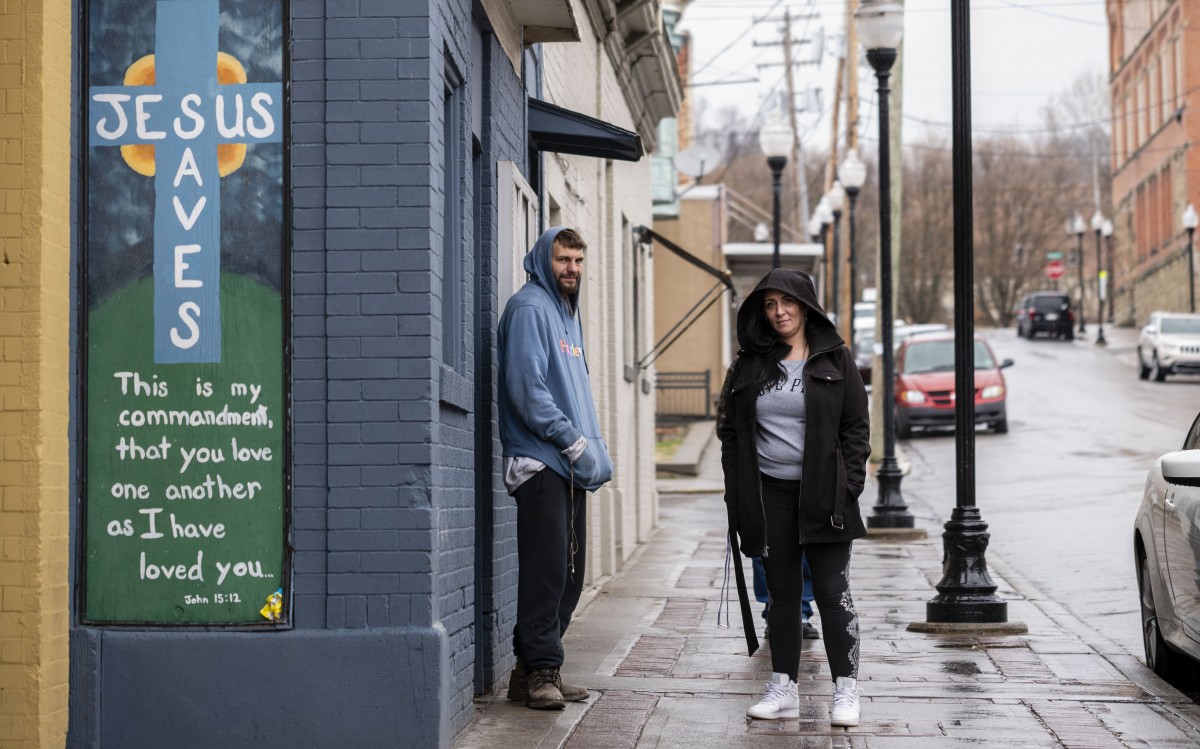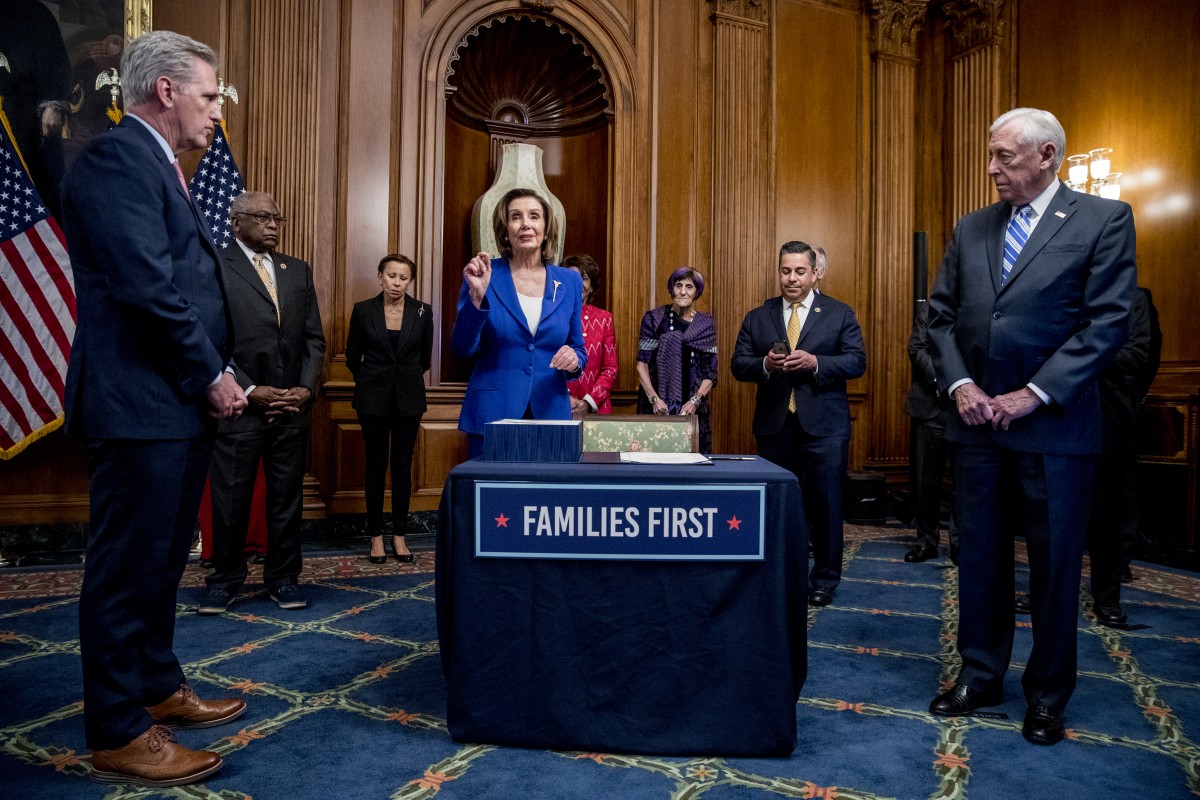This article was originally published by Ohio Valley ReSource.
As the number of coronavirus cases surge across the country, some meatpacking facilities have been temporarily shuttered due to workers falling ill to the virus. Three workers in Georgia have even died.
With workers at some Ohio Valley facilities now testing positive for the virus, worker safety advocates are raising concerns about how adequately workers are being protected and the implications for the food supply.
West Virginia’s poultry and livestock industries bring in the large majority of the state’s agricultural revenue, with poultry and eggs bringing in approximately $387,884,000 in 2017. Most of that production happens in the state’s eastern panhandle in places including Pendleton County, where Steve Conrad raises turkeys for a regional cooperative.
He said a worker tested positive for the coronavirus last week at the cooperative’s poultry processing facility across the state border in Hinton, Virginia. While Conrad believes the situation at the facility is under control, the potential for the spread of the virus at such processing facilities could be substantial.
“I would think it would spread like wildfire, to tell you the truth, if it’s as infectious as what they say it is,” Conrad said. “The people are standing probably within three feet of each other as either they’re taking the meat off the bones or taking the feathers off the carcass, and pulling the guts out.”
He said the cooperative has taken measures such as removing microwaves used by workers at the facility’s cafeteria, using masks in the facility, and monitoring the health of workers. Executive leadership at the cooperative could not be immediately reached for comment regarding social distancing and other measures at the facility.
Conrad also said unlike the other industries, it can be difficult to slow down the meatpacking production.
“If you’re building cars, you can just shut down the line. You know, that steel is going to be ready for you whenever you start up again,” Conrad said. “But in the poultry business, or the cattle business or hogs … they’re growing so many pounds on a daily basis. We can’t shut off the feed. They got to be harvested.”
Cargill is one of the latest meatpacking companies to close a processing facility to protect their workers’ health. And more cases are beginning to pop up in Ohio Valley facilities elsewhere.
Growing Risk
Caitlin Blair is a spokeswoman for the United Food and Commercial Workers Local 277, a union chapter representing people working for Pilgrim’s Pride, Specialty Foods Group, Tyson Foods and JBS USA, at meatpacking plants throughout Kentucky and in southern Indiana.
She said there have been some positive coronavirus tests among these facilities, and the union has been pushing meatpacking companies to better protect union workers.
“A lot of our employers are doing really well, social distancing, especially in public areas, or common areas like break rooms. But there’s also a lot of room for improvement,” Blair said. “The machines are loud, and it’s a dangerous shop, normally. And the coronavirus has just made that job even more dangerous.”
Blair said while Kentucky already considers meatpacking workers essential, her union is trying to get the state government to classify workers as first responders to get better access to personal protective equipment and access to child care services. The union is also asking companies to slow down the speed of their processing plants to allow for more protective measures.
Blair said some companies have offered some union members one-time bonuses, ranging from $300 to $600. But she said these bonuses may not be paid out for months and are sometimes tied to worker attendance.
“Various employers have tied that to perfect attendance at a time when day cares are closed, schools are closed, people are having to scramble for childcare,” she said. “Those bonuses should be paid immediately with no attendance strings attached.”
Protections and bonuses vary among the major meatpacking companies in the Ohio Valley. Tyson Foods said the company is checking the temperature of workers before they enter plants, building dividers between workstations and adding space between workers. Pilgrim’s Pride and JBS USA is also setting up “triage tents” to test temperatures and stagger break times for workers.
Yet one worker safety advocate argues the mismatched protection standards across the industry could leave some workers more vulnerable to the coronavirus, and says the federal government should do more.
Deborah Berkowitz is worker health and safety program director for the National Law Employment Law Project, an advocacy group for workers’ rights. She said the Occupational Safety and Health Administration has released guidance for employers regarding coronavirus, but there isn’t a required standard for COVID-19 among the meatpacking industry.
“What you’re finding is a lot of companies, because there’s no mandated requirements, are just doing a little bit here, a little bit there, but not enough to protect workers,” Berkowitz said. “That is a devastatingly dangerous situation for workers to be in.”
Berkowitz, who served as a senior policy adviser for OSHA, said by having a standard of mandated social distancing and extra precautions for sanitizing, these plants can better protect their workers.
Supply Concerns
For Kentucky Agriculture Commissioner Ryan Quarles in addition to concerns about worker safety, the state’s most lucrative agriculture industry is at risk. Livestock and poultry products brought in more than $3 billion to the state in 2017.
“One of my biggest concerns is keeping our meat processors open for business,” Quarles said. “A short disruption or shut down of a processing plant can ripple all the way down to the farm level instantly.”
Quarles also said the Kentucky Department of Agriculture is still developing guidance with the Kentucky Farm Bureau to be issued to farmers regarding appropriate coronavirus measures. In the meantime, he asks those in the industry to follow guidelines from the Centers for Disease Control and Prevention.



